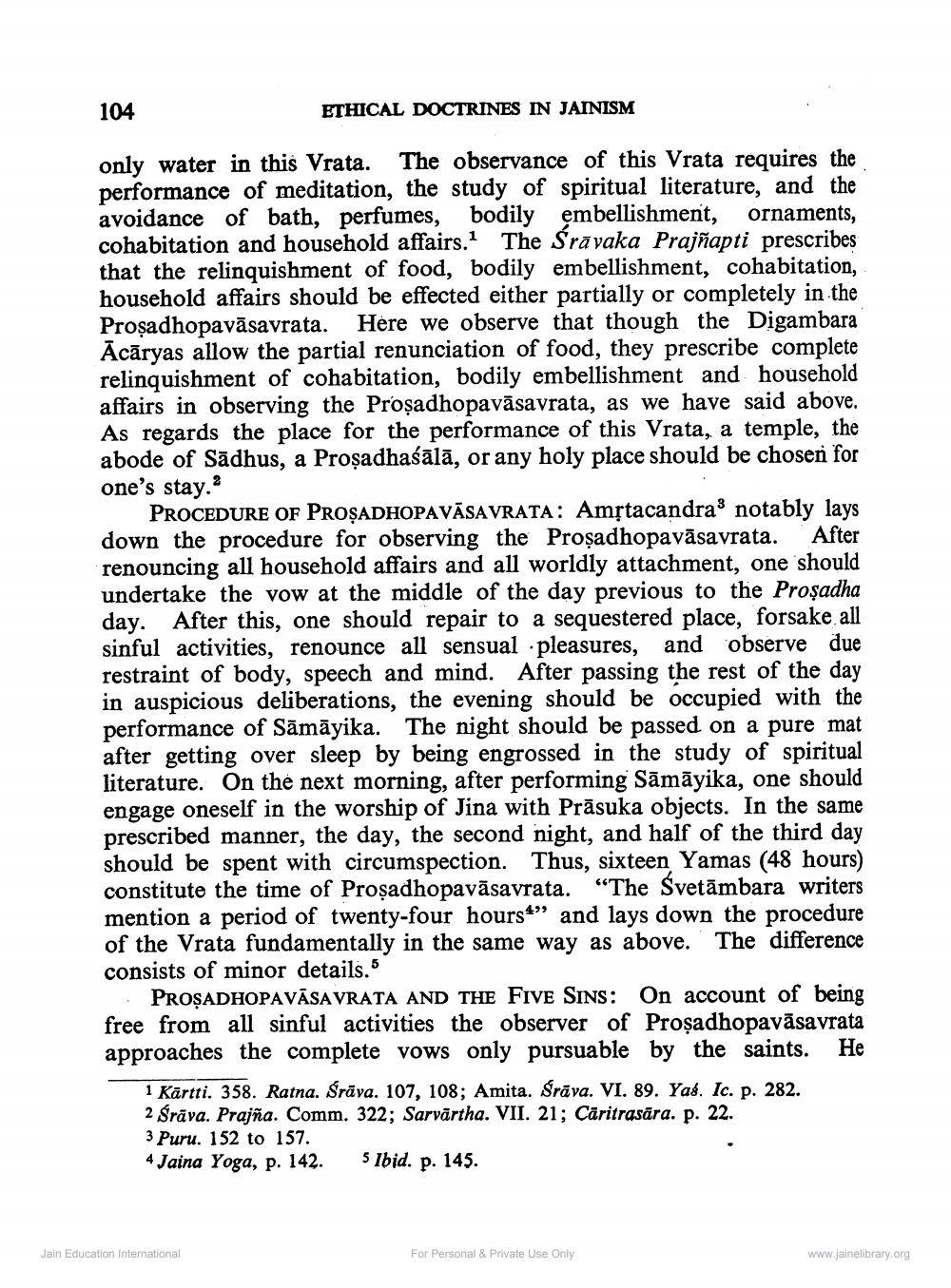________________
104
ETHICAL DOCTRINES IN JAINISM
only water in this Vrata. The observance of this Vrata requires the performance of meditation, the study of spiritual literature, and the avoidance of bath, perfumes, bodily embellishment, ornaments, cohabitation and household affairs. The Śrāvaka Prajñapti prescribes that the relinquishment of food, bodily embellishment, cohabitation, household affairs should be effected either partially or completely in the Proșadhopavāsavrata. Here we observe that though the Digambara Ācāryas allow the partial renunciation of food, they prescribe complete relinquishment of cohabitation, bodily embellishment and household affairs in observing the Proşadhopavāsavrata, as we have said above. As regards the place for the performance of this Vrata, a temple, the abode of Sādhus, a Prosadhaśālā, or any holy place should be chosen for one's stay.
PROCEDURE OF PROȘADHOPAVĀSAVRATA: Amộtacandra notably lays down the procedure for observing the Proşadhopavāsavrata. After renouncing all household affairs and all worldly attachment, one should undertake the vow at the middle of the day previous to the Proşadha day. After this, one should repair to a sequestered place, forsake all sinful activities, renounce all sensual pleasures, and observe due restraint of body, speech and mind. After passing the rest of the day in auspicious deliberations, the evening should be occupied with the performance of Sāmāyika. The night should be passed on a pure mat after getting over sleep by being engrossed in the study of spiritual literature. On the next morning, after performing Sāmāyika, one should engage oneself in the worship of Jina with Prāsuka objects. In the same prescribed manner, the day, the second night, and half of the third day should be spent with circumspection. Thus, sixteen Yamas (48 hours) constitute the time of Prosadhopavāsavrata. "The Svetāmbara writers mention a period of twenty-four hours*” and lays down the procedure of the Vrata fundamentally in the same way as above. The difference consists of minor details.5
PROȘADHOPAVĀSAVRATA AND THE FIVE SINS: On account of being free from all sinful activities the observer of Proşadhopavāsavrata approaches the complete vows only pursuable by the saints. He
1 Kārtti. 358. Ratna. Śrāva. 107, 108; Amita. Śrāva. VI. 89. Yas. Ic. p. 282. 2 Śrāva. Prajña. Comm. 322; Sarvārtha. VII. 21; Caritrasāra. p. 22. 3 Puru. 152 to 157. 4 Jaina Yoga, p. 142. 5 Ibid. p. 145.
Jain Education International
For Personal & Private Use Only
www.jainelibrary.org




